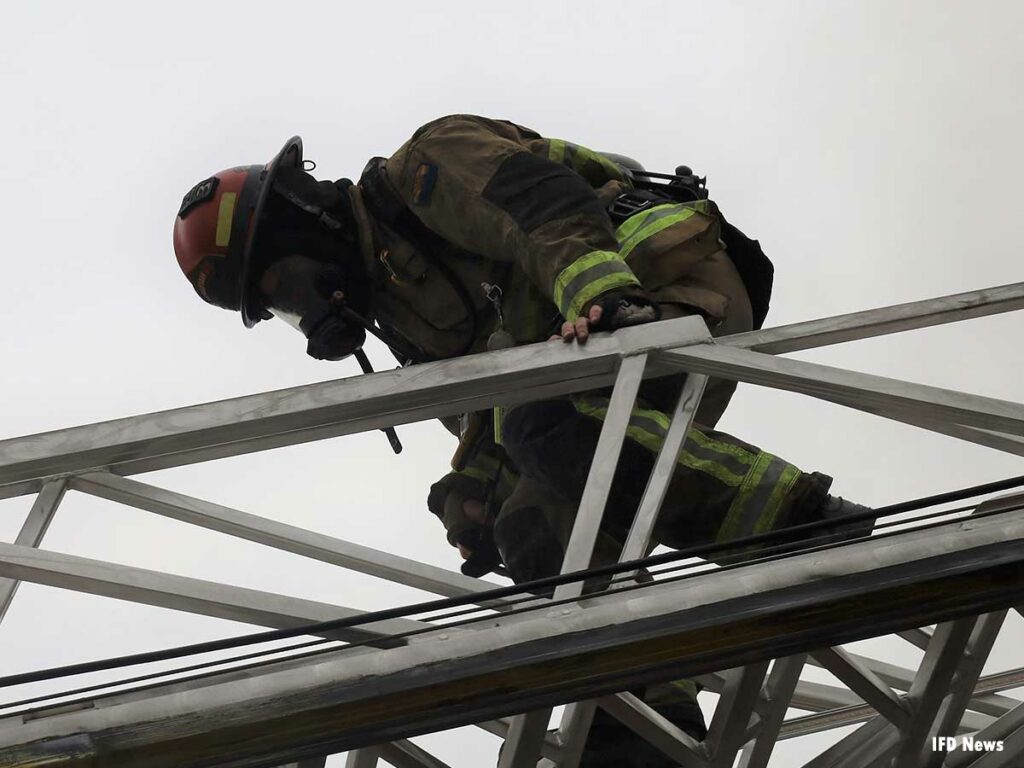
By Dr. Kristen Wheldon
Prior to 2017, I spent several years behind bars. I worked in both California jail and prison systems treating incarcerated men and training correctional officers how to address them. I learned a lot from that experience as it required me to face fears and challenge assumptions.
Given that my doctoral dissertation research involved combat veterans with post-traumatic stress disorder (PTSD), I became a specialist in trauma-related outcomes. That led me to an opportunity to work as a psychologist in a large metropolitan fire department.
- Behavioral Health: Rescuing the Rescuers
- Drawn by Fire: Point of No Return
- Helping Firefighters Deal with a Traumatic Incident
- Firefighter Stress Resilience and Increasing Emotional Bandwidth
One summer day I was working in a prison, and the next at the fire department. One of my initial engagements involved a department response to the suicide of a fire academy instructor. There was a class of incoming firefighters completely shocked and having a difficult time processing the event. It was mind bending.
Not only was this man someone they respected but he represented one psychological response to a fire service career. I couldn’t help but imagine they were conceptualizing what the career might mean to them. Over the next couple years, I heard firefighters saying they would die by fire, cancer, or suicide—as if it was an inevitable outcome. There was a resignation and a hopelessness I hadn’t seen before.
Furthermore, my experience with that department revealed a stark contrast with my previous work in the corrections field. Inmates have better access to specialized psychological care than our firefighters and their families. What’s worse is that very few people are having open dialogue on how we can provide specialized psychological services to those fire service populations. Common wisdom would say that fire department leaders will make decisions in the best interest of the firefighter’s psychological needs. Yet how can that be possible without direct input from subject matter experts in psychology who are culturally competent to meet the needs of the firefighters and officers?
Within the prison system, a staff psychologist would implement behavioral health programs for inmates established by research and evidence-based practice. Those efforts were managed under the authority of other licensed psychologists who had spent their entire careers advancing what we know about the psychology of crime, society, and offenders.
In contrast, there are only a small number of psychologists who are actively working with fire departments and their personnel. Community resources, at best, treat firefighters under the umbrella of “first responders.” However, most psychologists are not “culturally competent” with respect to fire service culture, including what firefighters do besides fight fires—provide EMS, hazardous materials response, and technical rescue operations, for starters—and the conditions under which they work on a daily basis.
Although some large fire service organizations are sponsoring specific treatment centers as the answer to these deficiencies, one area that’s not being adequately addressed is data collection and analysis using accepted research methodologies. Thus our body of knowledge regarding fire psychology research is limited, our mental health clinicians establish no cultural competence, and our firefighters are given psychological care that is not tailored to fit their special needs.
- Help, This Job Is Killing Me!
- Calling a Mayday for Your Mind
- Three-Tiered Wellness and Fitness Initiative
- Drawn by Fire: Troubled Waters
The field of psychology was developed out of the need to treat mental illness. Today, however, that is only a fraction of what psychologists do. Many organizations use these professionals to assist elite athletes and military groups to perform at their best. Additionally, we see the value of offering proactive psychological services (e.g., pre-martial counseling) to firefighters and officers as opposed to reactive services (e.g., encouraging service to couples contemplating divorce) when the stresses of the job have already taken a toll on an individual. Ideally, fire departments would provide annual confidential assessments with a licensed psychologist to outline the firefighter’s demands and resources and ways to support their growth.
Firefighters deserve the best psychological care provided by clinicians who are culturally competent to meet their needs. However, this is only possible with commitment from both the field of psychology and the fire service. With research, we can establish evidence-based practices to prevent and recover from psychological illness. With education, we can create a generation of mental health professionals who understand the fire service. With collaboration, we can take care of our people. We can do better and we must do better. There is too much at stake to merely stand by.
In 2017, the Fire Service Psychology Association was created to mark and reflect that initial commitment to marry the professional psychology and the fire service disciplines.
Dr. Kristen Wheldon (CA#PSY2027) is a licensed clinical psychologist who has a passion for the behavioral health of firefighters and their families. She currently serves as the president and founder of the Fire Service Psychology Association (FSPA), a nonprofit which she created to “bridge the gap between professional psychology and the fire service” by providing continuing education courses to mental health providers, behavioral health trainings to fire departments, and collaborating on research to better understand the specific needs of firefighters and their families. Learn more about FSPA at www.firepsychology.org

